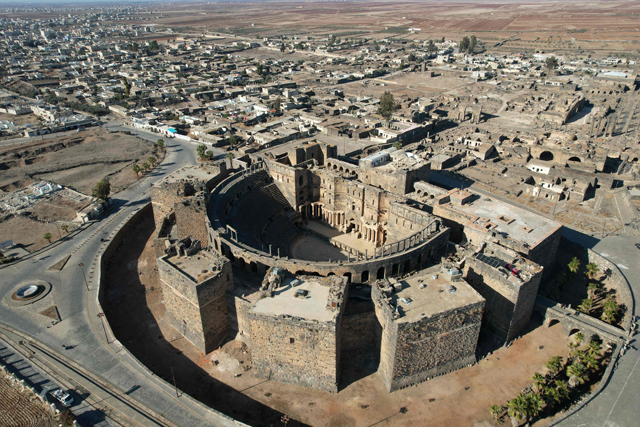GENEVA - The UN migration agency on Thursday expanded an aid appeal for Syria to over $73 million, as the country transitions after years of civil war and decades of dictatorship.
The United Nations' International Organisation for Migration said it was more than doubling an appeal launched last month for Syria, from $30 million to $73.2 million, with the aim of assisting 1.1 million people across Syria over the next six months.
"IOM is committed to helping the people of Syria at this historical moment as the nation recovers from nearly 14 years of conflict," IOM chief Amy Pope said in a statement.
"IOM will bring our deep experience in humanitarian assistance and recovery to help vulnerable communities across the country as we work with all partners to help build a better future for Syria."
The Geneva-based agency said it was working to reestablish its presence inside Syria, after exiting Damascus in 2020, building on its experience working there in the preceding two decades, as well as on its cross-border activities in the past decade to bring aid to northwest Syria.
It said it aimed "to provide immediate assistance to the most at-risk and vulnerable communities, including displaced and returning groups, across Syria".
The requested funds, it added, would be used to provide essential relief items and cash, shelter, protection assistance, water, sanitation, hygiene and health services.
They would also go to providing recovery support to people on the move, including those displaced, or preparing to relocate.
The dramatic political upheaval in Syria after the sudden ousting last month of strongman Bashar al-Assad after decades of dictatorship has spurred large movements of people.
Half of Syria's population were forced from their homes during nearly 14 years of civil war, with millions fleeing the country and millions more displaced internally.
The UN refugee agency has said it expects around one million people to return to the country in the first half of this year.
And by the end of 2024, the UN humanitarian agency had already recorded the returns of nearly 500,000 people who had been internally displaced inside Syria, IOM pointed out.
US-backed Kurdish forces who control an autonomous region in northeastern Syria said Wednesday they had told the new Damascus authorities they did not want to break away from the rest of the country.
"We agree that we are for the unity and integrity of Syrian territory and reject any division projects that threaten the country's unity," the commander of the Kurdish-led Syrian Democratic Forces (SDF), Mazloum Abdi, said in a written statement to AFP.
He spoke following a meeting he described as "positive" between Kurdish leaders and the Damascus authorities late last month, and after weeks of deadly clashes between the SDF and Turkish-backed groups in northern Syria.
"We support the efforts of the new administration for there to be stability in Syria to pave the way towards building constructive dialogue between Syrians," he said.
"Thus it is the responsibility of the new administration to intervene in order for there to be a ceasefire throughout Syria," he said.
Syria's Kurds control much of the oil-rich northeast of the country, where they have enjoyed de facto autonomy during much of the civil war since 2011.
The US-backed SDF spearheaded the military campaign that ousted the Daesh terror group extremists from their last territory in Syria in 2019.
But Turkey accuses the main component of the SDF, the People's Protection Units (YPG), of being affiliated with the Kurdistan Workers' Party (PKK), which has waged a four-decade insurgency against the Turkish state.
Turkey has mounted multiple operations against the SDF since 2016.
Turkish-backed factions in northern Syria resumed their fight with the SDF around the same time as Islamist-led rebels moved out of their northern bastion in a flash offensive to seize Damascus in early December.
Turkey has long had ties with the rebels who overthrew Syrian president Bashar al-Assad -- the Islamist group Hayat Tahrir Al Sham led by Ahmed Al Sharaa.
An official in Damascus told AFP last month that Sharaa has held talks with SDF delegates in the Syrian capital on December 30, describing them as "positive".
A day earlier, Sharaa had told Al Arabiya TV that the Kurdish-led forces should be integrated into the new national army.
He said weapons "must be in the hands of the state alone", calling on those "armed and qualified to join the defence ministry".
He spoke of "dialogue with the SDF... to perhaps find an appropriate solution."
The Kurdish authorities said that Turkish shelling killed five civilians Wednesday as they were on their way to the Tishreen Dam on the Euphrates river in an SDF-held part of Aleppo province to protest against it being repeatedly targeted.
More than 100 combatants were killed in two days in fighting between Turkish-backed groups and the SDF last week, the Britain-based Syrian Observatory for Human Rights war monitor said.
